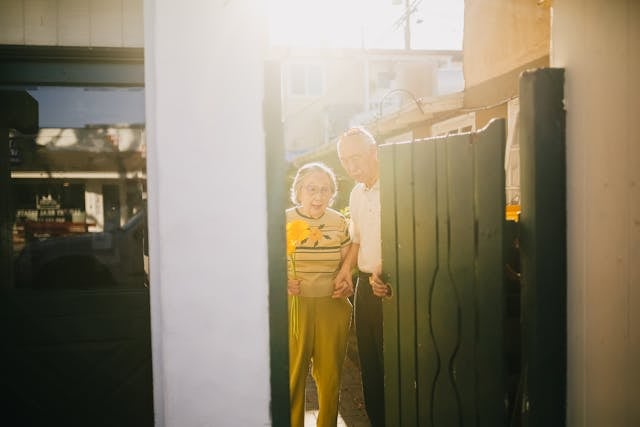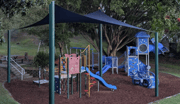
Picture this: after 50 years in Australia, you find yourself needing aged care.
However, the facility can't prepare the meals you've eaten your whole life, staff can't understand your concerns when you speak your native language, and the activities revolve around traditions that feel foreign to you.
For hundreds of thousands of Australian seniors, this scenario isn't imaginary: it's their reality.
Over one-third (37 per cent) of older Australians were born overseas, and more than one in six (about 18 per cent) speak a language other than English.
On the other hand, almost six per cent of older Australians speak English either not well or not at all.
Yet despite this remarkable diversity, Australia's aged care system is struggling to catch up with the multicultural reality of our ageing population.
The numbers tell a story of unmet needs
In 2023—24, about 835,000 people were assisted under the Commonwealth Home Support Programme, while 275,000 people were using home care as of June 2024.
What these impressive statistics don't reveal is how many of these seniors are receiving care that truly understands their cultural background, dietary needs, and communication preferences.
'If they cannot communicate in their language, they suffer even more.'
The gap becomes particularly stark, considering that many older Australians were born overseas, speak a variety of languages, may not speak English fluently or have defining religious or cultural practices.
These groups of people can be referred to as culturally and linguistically diverse (CALD).
The situations and needs of CALD Australians vary due to their diverse backgrounds. CALD Australians can face barriers in accessing and engaging with aged care and the support they require.
When memories retreat to childhood
Chen Li's experience at Melbourne's On Luck Chinese Nursing Home highlights what's possible when aged care gets it right.
At 98, Chen moved there after struggling in a mainstream facility where communication was difficult and the food unfamiliar.
'Today for breakfast I had a sausage bun, porridge, and a Chinese steamed egg,' he shared contentedly, describing a morning routine that connects him to his cultural roots.
For seniors with dementia, culturally appropriate care becomes even more crucial.
As Dr Wong explains, when dementia progresses, people often retreat to their earliest memories and native languages.
Imagine the confusion and distress of trying to communicate your needs, fears, or pain in a language that's slipping away from you, to carers who don't understand your cultural context.
Yet, Chen's positive experience isn't typical.
Dr Wong notes that Victoria has only three dedicated Chinese aged care facilities with a total of 200 beds, mainly providing low to medium-level care.
For residents with dementia—those who most desperately need culturally appropriate services—there are only a few dozen beds available across the entire state.
The promise and reality of reform
The new Aged Care Act 2024, which should come into effect on November 1, 2025, represents the most significant overhaul of aged care in decades.
Following the Royal Commission's damning findings of systemic failures, the Act promises that aged care providers must respect individual preferences, needs, and rights, including cultural identity.
In the 2024-25 Federal Budget, the Australian Government committed $2.2 billion to fund the aged care sector.
An additional 24,100 Home Care Packages were added to the system in 2024—25, totalling $531.4 million.
What the new Aged Care Act promises for multicultural seniors
The Act includes a statement of rights outlining that older people should expect to feel safe and have their culture and identity respected. Service providers must deliver care that is culturally sensitive and trauma-informed. However, critics argue that the guidance remains too vague and lacks specific funding mechanisms for additional cultural requirements.
The challenge lies in translating these good intentions into practical reality.
As Dr Wong points out, if an aged care service needs to expand from 60 meal options to provide culturally diverse cuisine, there's no extra funding to cover the additional costs.
Staff training in cultural competency often requires materials translated into community languages, which is another unfunded expense.
Beyond Chinese communities: A broader struggle
While On Luck provides an example of successful culturally specific care for the Chinese community, other cultural groups face even greater challenges.
Duru Khubchandani's experience with her Indian mother, Guri Nankani, illustrates the broader struggle.
When Guri developed dementia, the family moved her into a Sydney aged care facility.
As a vegetarian Hindu, she couldn't communicate well with carers, refused the bland non-meat options, and felt isolated from activities centred around Christian traditions.
Despite daily family visits, Duru remains uncertain whether her mother was happy in her final years.
'Most of them are getting the care at home, living on their own,' Duru, now 71, explains about her elderly friends from similar backgrounds.
'They can't live with their children because they have their own lives and commitments.'
This preference for home care over residential facilities reflects not just personal choice, but often a lack of confidence that institutional care will meet their cultural needs.
The data we're missing
'There's no data in this space at all. But we certainly know that there is a gap,' Lisa Ward from the Ethnic Communities Council of Queensland stated.
'Understanding how large a gap isn't something that we know. Unfortunately, it's all anecdotes.'
This absence of disaggregated data means aged care services are designed 'for the average Australian' rather than specific community needs.
Wait times for Home Care Packages remain a key challenge, with approximately 45,000 older Australians waiting for their approved package level as of March 2024.
For CALD seniors, these delays can mean even longer waits as they seek providers who understand their cultural needs.
Finding hope in innovation
Despite the challenges, innovative approaches are emerging across Australia.
Not-for-profit organisations operated around 65 per cent of home care services and 73 per cent of home support outlets as of 2024, with private organisations providing 29 per cent of home care services and 9.5 per cent of home support outlets.
Many of these providers are developing cultural competency programs and partnering with community groups.
Some aged care facilities are establishing cultural committees with community representatives, implementing flexible meal programs that cater to diverse dietary requirements, and hiring staff from diverse cultural backgrounds.
Technology is also playing a role, with translation services and culturally specific apps helping bridge communication gaps.
What families can do now
While systemic change takes time, families don't have to wait.
When evaluating aged care options, ask specific questions about cultural accommodation. Can they provide halal, kosher, or vegetarian meals? Do they celebrate cultural festivals? Are there staff members who speak your family member's preferred language?
About seven in 10 older Australians want to receive care in their own homes as they age.
For CALD families, this preference often stems from concerns about cultural appropriateness in residential care. Exploring home care options with providers experienced in multicultural service delivery can be a valuable alternative.
Example Scenario
The Patel family approach
When 79-year-old Raj Patel needed aged care, his family researched providers in their Melbourne suburb. They found a home care service that employed Gujarati-speaking staff, could source vegetarian meals prepared according to his dietary requirements, and understood the importance of daily prayer time. By asking the right questions upfront, they avoided the cultural disconnect that affects many CALD families.
As Australia's aged care system continues evolving, the experiences and needs of multicultural families must be heard.
Whether you're currently navigating aged care decisions, have experience with culturally appropriate services, or are planning for your own or family members' future needs, your story matters.
What's your family's experience with aged care services? Have you found providers who truly understand and accommodate cultural needs, or have you encountered the gaps highlighted in this article?
Share your experiences in the comments below! Your insights could help other families facing similar decisions and contribute to creating an aged care system that truly serves all Australians.
Primary source
'Afterthoughts': Concerns aged care reforms do not tackle service gaps
A new Aged Care Act comes into effect in November, but some question if the act will meaningfully address service gaps for culturally and linguistically diverse communities. www.abc.net.au
www.abc.net.au
Older Australians, Culturally and linguistically diverse older people—Australian Institute of Health and Welfare
Cited text: 'Key findings Over one-third (37%) of older Australians were born overseas. Key findings Over 1 in 6 (18%) older Australians spoke a language other tha...'
Excerpt: Over one-third (37 per cent) of older Australians were born overseas, and more than one in six (about 18 per cent) speak a language other than English.

Older Australians, Culturally and linguistically diverse older people
Older people make up a considerable proportion of Australia@s population @ at 30 June 2020, over 1 in 6 people were aged 65 and over. The report details the demographic profile of older Australians... www.aihw.gov.au
www.aihw.gov.au
People using aged care—AIHW Gen
Cited text: 'In 2023–24, about 835,000 people were assisted under the Commonwealth Home Support Programme (home support). Additionally, on 30 June 2024, 275,000...'
Excerpt: In 2023—24, about 835,000 people were assisted under the Commonwealth Home Support Programme, while 275,000 people were using home care as of June 2024.
Home Care Statistics in Australia—The CareSide
Cited text: 'In the 2024–25 Federal Budget, the Australian Government committed $2.2 billion to fund the aged care sector. (Department of Health and Aged Care, 202...'
Excerpt: In the 2024-25 Federal Budget, the Australian Government committed $2.2 billion to fund the aged care sector.

Home Care Statistics in Australia - The CareSide
From government reports to user trends, here’s a breakdown of the most important home care statistics in Australia. www.thecareside.com.au
www.thecareside.com.au







